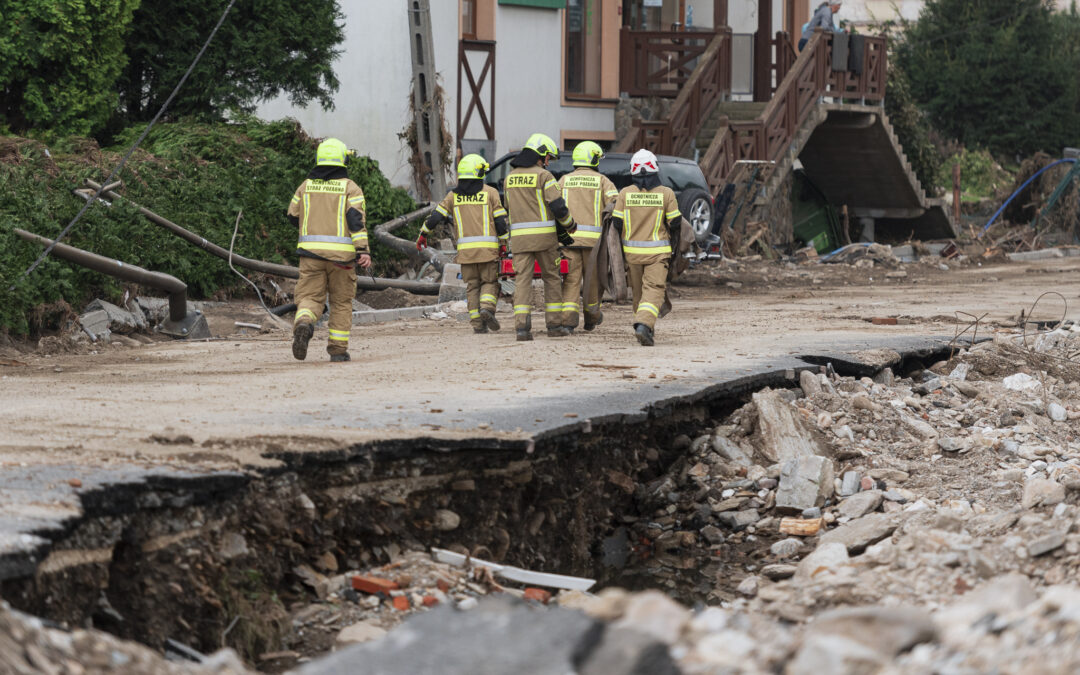Keep our news free from ads and paywalls by making a donation to support our work!

Notes from Poland is run by a small editorial team and is published by an independent, non-profit foundation that is funded through donations from our readers. We cannot do what we do without your support.
President Andrzej Duda has signed into force a new law on civil defence and protection of the population. It introduces mandatory training for officials, new rules for managing protective infrastructure such as shelters, and places coordination of such activities under the interior ministry.
The legislation, which goes into force on 1 January 2025, is inspired by the civil protection strategies of Nordic countries, particularly Sweden and Finland.
Ustawa o ochronie ludności i obronie cywilnej – fundament systemu ochrony społeczeństwa
–
17 grudnia br. w #Warszawa odbyła się konferencja prasowa wicepremiera W. @KosiniakKamysz oraz ministra spraw wewnętrznych i administracji, koordynatora służb specjalnych @TomaszSiemoniak,… pic.twitter.com/NmWJok4N3o— Ministerstwo Obrony Narodowej 🇵🇱 (@MON_GOV_PL) December 17, 2024
“We have a large army – the third largest in NATO in terms of numbers – but we must also have a resilient society,” said defence minister Władysław Kosiniak-Kamysz this week. He described the new law as a “landmark for [Poland’s] security”.
“The construction of civil defence and civil protection infrastructure is an absolute priority for the government,” added the minister. Since Russia’s full-scale invasion of Ukraine, Poland has stepped up its efforts to strengthen its military and civil defence.
“It is a society that determines whether we win a war or lose it, whether we survive a conflict situation or fall. A strong society is number one,” declared Kosiniak-Kamysz.
Among the new measures included in the law is regular training and exercises in civil protection and defence for public officials as well as rules for the use of protective structures to safeguard the population during natural disasters, terrorist events or wars.
There have previously been concerns – in particular since the invasion of Ukraine, Poland’s eastern neighbour – about the quality and quantity of shelters available in Poland.
The results of a government survey published last year showed that, in a country of 38 million people, bomb shelters could only accommodate 300,000. However, other secure spaces, such as metro stations and tunnels, could hold up to 48 million people.
An inventory has found that Poland, a country of 38 million, has 300,000 spaces in bomb shelters but 48 million in "hiding places" and "places of temporary shelter", such as metro stations and tunnels.
The government has launched an online map of shelters https://t.co/vDSu06nuHc
— Notes from Poland 🇵🇱 (@notesfrompoland) April 7, 2023
The new law also aims to maximise the existing potential of civil protection entities, including the fire service, voluntary fire brigades, mountain and water rescue teams, and other organisations involved in rescue operations, humanitarian aid, and public safety education.
It designates the interior minister as the head of civil defence, a position previously held by the chief of the fire service. “We wanted to elevate this area to the higher level,” said Kosiniak-Kamysz.
Meanwhile, a Civil Protection and Defence Programme will fund the tasks set out in the law. Annual allocations are set at a minimum of 0.3% of GDP. Kosiniak-Kamysz noted that this amounts to about 24 billion zlotys (€5.6 billion) over four years.
After devastating floods in Poland, experts and policymakers are debating how to better prepare for extreme weather events.
Improved infrastructure, nature-based solutions, and better warning systems will all be part of the answer, writes @WojciechKosc https://t.co/QCTUIMxa01
— Notes from Poland 🇵🇱 (@notesfrompoland) October 24, 2024
The defence minister also noted that “in Sweden, a few weeks ago, a manual on how to prepare for combat was delivered to every home”. He said that Poland was working on a similar idea, which would be ready in April and would cover “various types of emergencies”, such as flooding.
Speaking alongside Kosiniak-Kamysz, interior minister Tomasz Siemoniak expressed gratitude for the “unanimous support” for the law in both chambers of parliament. “The security of our homeland should unite and not divide,” he declared.
President Duda is an ally of the opposition Law and Justice (PiS) party and has often clashed with the current government, including vetoing some of its laws. However, on issues of national security, both sides are generally aligned.
NATO's secretary general has hailed Poland for "leading the way on defence spending" during a visit to Warsaw
Poland spends 4.12% of GDP on defence, the highest figure in NATO. "This sends a clear message to our adversaries and to the US," said Mark Rutte https://t.co/ks63JVPkmD
— Notes from Poland 🇵🇱 (@notesfrompoland) November 14, 2024

Notes from Poland is run by a small editorial team and published by an independent, non-profit foundation that is funded through donations from our readers. We cannot do what we do without your support.
Main image credit: KGPSP (under CC BY-NC-ND 3.0 PL)

Alicja Ptak is deputy editor-in-chief of Notes from Poland and a multimedia journalist. She has written for Clean Energy Wire and The Times, and she hosts her own podcast, The Warsaw Wire, on Poland’s economy and energy sector. She previously worked for Reuters.



















